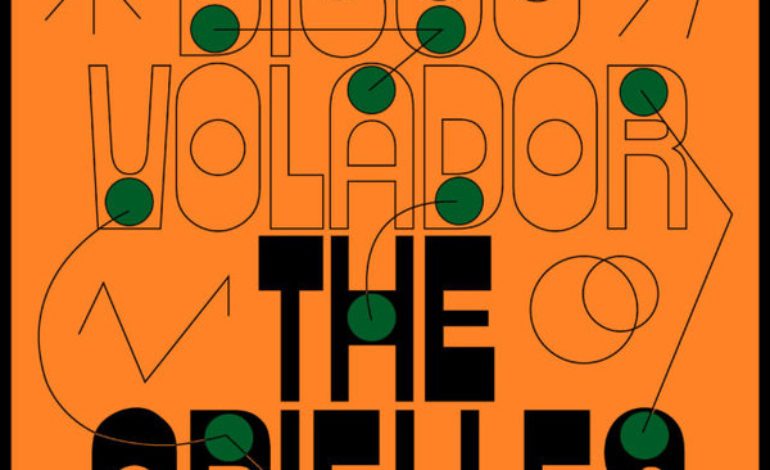

English indie rock band has caught the dancing bug
True, the Orielles can’t completely distance themselves from the indie standard. The vocals are understated, and the heavy lifting is handled by hazy, lo-fi production reminiscent of countless garage bands. However, most of those bands stop there, and they forget to bring any sparkle to their music. Leave it to the Orielles’ label, Heavenly Records, to vouch for the band’s idiosyncrasy: “The four-piece… [hitch] a ride on the melodic skyway to evade the space-time continuum through a sharp collection of progressive strato-pop symphonies.” So… is that supposed to mean they’re good?
Yes, apparently. The English quartet’s sophomore effort, Disco Volador, is superior to 2018’s Silver Dollar Moment, which was itself an appealing yet conventional debut. The new LP has an unshakable sense of rhythm, and it sheds the guitar-rich sound from their first record in favor of a well-rounded mix of strings, keyboards, cowbells and bongos. Disco Volador is effortlessly cool, yet in a proper sort of way, like the Talking Heads. This fresh, upbeat energy is enough for the album to be worth a listen, even if the tracks start to blend together in the second half.
Disco Volador is peppered with bells and whistles throughout its 43-minute runtime. On “Come Down on Jupiter,” drummer Sidonie B. Hand-Halford starts by gently swinging the beat through a cloud of intrigue, only to break out into a dreamlike, almost euphoric sprint. The band has branded itself for the space rock genre, and fittingly, an airy distortion pervades the melody and contrasts some of the track’s sharper strumming patterns. The accompanying lyrics, gracefully sung by Esmé Dee Hand-Halford, are just as trippy: “There’s transparency in the shape of it/ so stretch it out and follow it, in our lives.”
The Orielles take after the quirks of Stereolab, Tom Tom Club and even the French avant-rocker Serge Gainsbourg, who might have been a special influence behind the synthesizers that zigzag through “Rapid i.” The most eccentric moments might as well be ripe for a Wes Anderson movie soundtrack. The beginning of “Bobbi’s Second World” sounds like the theme song to an ’80s’ buddy cop television show, and believe it or not, the random yelps from the background singers help to make the track infectiously fun. The Orielles just can’t seem to lose steam on this album. Whoever’s playing the tambourine should deserve a medal – wouldn’t their wrists cramp up after they played for ten songs?
Disco Volador comes with a kick, gingerly stepping through key changes and percussive flourishes alike. It’s clear that the Orielles have a pulse, and with this most recent work, they’re offering listeners the change to feel it for themselves.
